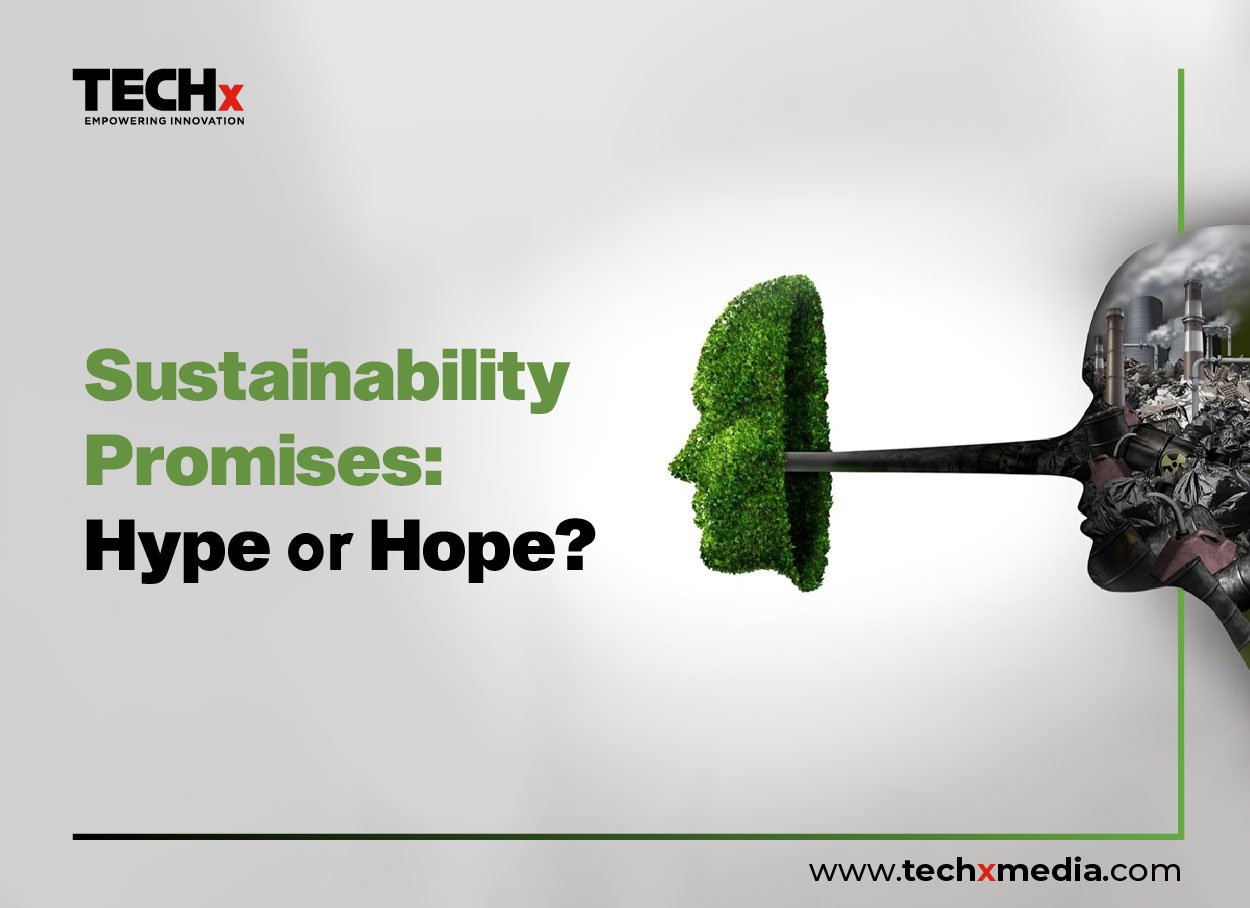23 December 2024, Mon |
2:27 AM

Sustainability has become a corporate buzzword in recent years, woven into nearly every corporate strategy, annual report, and marketing campaign. From net-zero commitments to circular economy goals, the world’s largest corporations are pledging ambitious targets. Yet questions arise: Are these initiatives truly transformational, or are they merely numbers aimed at enhancing public perception? To answer this, we must look beyond the headlines and dive into the actual practices, impacts, and challenges within the corporate sustainability landscape.
The Rise of Corporate Sustainability Goals
The corporate sector’s shift towards sustainability is undeniable. According to the World Economic Forum, over 80% of the world’s largest companies have committed to some form of sustainability targets, particularly in emissions reduction and resource conservation. The International Energy Agency (IEA) has also noted a marked increase in corporate investments into renewable energy sources, highlighting a potential alignment of corporate and environmental goals.
However, while these commitments look impressive, they often lack clarity regarding how and when companies plan to reach them. Long-term targets, such as reaching net-zero by 2050, are common, but without transparent, short-term milestones, these pledges can remain aspirational rather than actionable.
A Close Look at Accountability and Greenwashing
Greenwashing—a term describing deceptive practices where a company markets itself as environmentally friendly without backing it up with real action—remains a significant issue. For instance, some companies have committed to carbon neutrality by relying heavily on carbon offsets, where they essentially “buy” carbon credits to compensate for emissions rather than actively reducing their carbon footprint. While carbon offsetting can play a role in sustainability, it should ideally be a supplementary measure rather than a primary solution. Relying on offsets alone can be a costly and, at times, ineffective way to address emissions long-term.
Furthermore, a lack of standardized reporting practices adds to the murkiness. Despite the establishment of global sustainability standards such as the Global Reporting Initiative (GRI) and Sustainability Accounting Standards Board (SASB), companies still have leeway in how they measure and disclose their sustainability data. This lack of consistency not only confuses stakeholders but also makes it difficult to compare efforts across industries.
The Role of Technology in Authentic Sustainability
Technology has been a double-edged sword in sustainability efforts. On one hand, advancements in energy-efficient technologies, artificial intelligence (AI), and data analytics have enabled companies to monitor, reduce, and optimize resource use. For example, AI-driven energy management systems help industrial firms to cut energy consumption by up to 20%, offering tangible, measurable reductions in resource usage. Additionally, blockchain-based transparency tools are helping companies and consumers trace products through supply chains, ensuring resources are sourced sustainably.
Yet, technology is not a panacea. While smart technologies help reduce resource use, they do not solve issues such as supply chain emissions, e-waste, or the ecological impact of manufacturing hardware itself. In other words, tech innovations can enhance sustainability practices but cannot replace the fundamental shifts needed in how businesses operate.
Real Actions and Their Impacts
Some companies are taking concrete, measurable actions that transcend “big numbers.” For example, IKEA’s initiative to build furniture using renewable and recyclable materials has gained global attention, setting a precedent for industries to adopt circular models. Similarly, Patagonia’s “Worn Wear” initiative—encouraging customers to repair rather than replace garments—exemplifies how a sustainability-focused business model can drive both brand loyalty and environmental responsibility.
Another example is Microsoft, which has committed to not only achieving carbon neutrality but going carbon-negative by 2030. Beyond that, the company has pledged to remove all the carbon it has emitted since its founding in 1975. This goal, albeit ambitious, represents an extraordinary level of accountability that extends beyond mere compliance.
Consumer Demand as a Driving Force
Consumers today are more informed and, importantly, more vocal about sustainability. This shift in consumer expectations is pressuring corporations to adopt more transparent and sustainable practices, with nearly 75% of consumers in recent surveys stating they would prefer brands that are environmentally conscious. Younger generations, especially Gen Z, prioritize sustainability to a degree that affects their purchasing choices and loyalty, incentivizing brands to meet these expectations.
However, consumer demand alone cannot catalyze systemic change. Regulations, policies, and industry standards are necessary to create a level playing field and ensure accountability across sectors. Many governments and regulatory bodies have introduced stricter environmental laws, but gaps still exist.
Moving Towards a Culture of Accountability
Ultimately, achieving real sustainability requires a paradigm shift in how businesses define success. Profitability will always be a central goal of any enterprise, but sustainability demands an integrated approach where environmental and social metrics are considered alongside financial ones. This shift is especially important for investors and stakeholders, who play a significant role in pushing for transparency and accountability in corporate sustainability goals. Increasingly, investors are favoring companies that prioritize ESG (Environmental, Social, and Governance) factors, a promising trend that aligns financial success with environmental responsibility.
Conclusion: Real Change or Just Numbers?
The corporate sector’s path to sustainability is both promising and problematic. While significant steps are being made, the current focus on “big numbers” and ambitious targets often lacks a comprehensive plan to turn these promises into action. For sustainability to be more than a buzzword, companies must adopt transparent, measurable, and accountable practices that deliver tangible environmental benefits rather than relying on high-level commitments with little impact.
In the end, sustainability will become “real” when it permeates corporate culture, influencing every decision, product, and service a company offers. This is not only a matter of environmental responsibility but also a business imperative. As the world increasingly recognizes the importance of sustainable practices, those who lead with genuine commitment will not only benefit the planet but also position themselves as the resilient, trusted companies of tomorrow.
This article is written by Rabab Zehra, Executive Editor at TECHx, where she covers technology, sustainability, and corporate responsibility, offering insights into the evolving intersection of business and environmental goals.